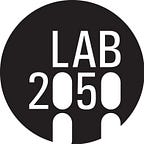참고문헌 및 주석
LAB2050 보고서 <참성장전략: 공멸이 아닌 공존의 시대로> 온라인 버전의 참고문헌, 주석 등을 정리한 포스트입니다. 보고서 본문은 링크(클릭) 또는 PDF 버전(다운로드)을 통해 보실 수 있습니다.
주석
[1] Our World in Data(2021년 8월 15일 접속)
[2] 이는 미국 내에서 지속적으로 논의되는 연구 주제이기도 하다(Arora et al., 2019; Caleb, 2020).
[3] 이 두 학자들은 이 책에서 경제학에서 가장 중요한 ‘경제성장’을 어떻게 측정해야 하는지, 무엇이 그것을 촉진하는지, 어떤 정책이 도움이 되는지도 명확히 알아내기가 어렵다는 고백을 한다. 이에 더 나아가 이들은 경제학자들이 성장을 논하는 것에 대한 집착을 버리자는 주장까지 한다(배내자 외, 2020, p.289, 320, 352).
[4] 탈세계화 현상은 국가 간 상호의존도가 줄어드는 것을 의미하며, 그 결과 국가들의 경제 전략과 행동의 변화를 추동한다. 실제로 지난 몇 십년 동안 급격히 증가했던 무역이나 직접 해외투자 등이 2007년-10년까지 급격히 멈추거나 줄어드는 현상을 보이고 있다(Witt, 2019).
[5] LAB2050에서는 이를 ‘자유안정성’으로 제안한 바 있다. <구교준 외(2018), ‘자유안정성 혁명: 행복하고 혁신적인 대한민국을 위한 제안’, 솔루션2050–01> 참조.
[6] SAP appeals were saturated with references to “solidarity,” “cooperation,” and “togetherness.” This was especially true in discussions of plans for an expanded welfare state, which was presented as part of the SAP’s strategy for creating a “strong society” (starka samhället) and protecting the public from the uncertainties and insecurities inherent in modern capitalism. As Tage Erlander (1956, 258–59), prime minister from 1946–69, put it, the SAP’s social policy grew out of a recognition that “security is too big a problem for the individual to solve with only his own power.”(Berman, 2011:251)
[7] 북유럽 4개국은 정부 부패지수 조사에서 부패지수가 가장 낮은 국가로 매년 평가되고 있다. (Transparency International, 2021년 8월 15일 접속)
[8] LAB2050의 보고서 <이승주 외(2020), ‘GDP를 넘어: 불안정성과 불확실성의 시대, 진정한 가치를 찾아서’, 인사이트2050–06> 및 <이승주 외(2021), ‘대안GDP 어떻게 만들 것인가?: 도시·국가·국제기구의 사례 분석’, 인사이트2050–08> 참고.
[9] 한국리서치 등의 2018년 2월 여론조사에서는 성장우선이 39%였지만, 2021년 8월 성장우선은 64%로 조사되었다(<전국지표조사, 제42호 2021년 8월 3주>, 한국리서치 월간리포트 <여론속의 여론, 2018.2.2.>). 이러한 원인은 성장의 한계에만 있는 것은 아니며 정치와 정책의 한계에도 있다.
참고문헌
- Andrews, D., C. Criscuolo and P. Gal(2016), ‘The Best versus the rest: The global productivity slowdown, divergence across firms and the role of public policy’, OECD Productivity Working Papers, №5, OECD Publishing, Paris. DOI
- Arora, A., Belenzon, S., Patacconi, A., and Suh, J.(2019). ‘Why the U.S. innovation ecosystem is slowing down’, Harvard Business Review.
- Berman, S.(2011), ‘Social democracy and the creation of the public interest’, Critical Review, 23(3), 237–256.
- Choi, Y., Fleckenstein, T., and Lee, S. (eds.)(2021), ‘Welfare reform and social investment policy in Europe and East Asia’, Bristol: Policy Press.
- Gordon, R. J.(2012), ‘Is US economic growth over? Faltering innovation confronts the six headwinds(No. w18315)’, National Bureau of Economic Research.
- International Monetary Fund(2017), ‘IMF Fiscal Monitor: Tackling inequality’, October 2017, Fiscal Monitor. Washington: IMF.
- OECD(2019), ‘Productivity growth in the digital age’, Going Digital February 2019, Paris: OECD.
- Randall, J. and Lee, J. W.(2018), ‘Enhancing dynamism in SMEs and entrepreneurship in Korea’, Economics Department Working Paper №1510, Paris:OECD.
- Watney(2020), ‘America’s innovation engine is slowing’, The Atlantic.
- Witt, M. A.(2019), ‘De-globalization: Theories, predictions, and opportunities for international business research’, Journal of International Business Studies, 50(7), 1053–1077.
- 김희강(2020), ‘돌봄 민주주의: 자유민주주의와 사회민주주의를 넘어’, 한국여성학, 36(1): 7–39.
- 놈 촘스키, 로버트 폴린(2020), ‘기후 위기와 글로벌 그린 뉴딜: 인류의 생존 매뉴얼’, 이종민 옮김, 현암사. <원제: Avram Noam Chomsky, Robert Pollin(2020), ‘Climate Crisis and the Global Green New Deal’>
- 아비지트 배너지, 에스테르 뒤플로(2020), ‘힘든 시대를 위한 좋은 경제학’, 김승진 옮김, 생각의 힘. <원제: Abhijit Banerjee, Esther Duflo(2019), ‘Good Economics for Hard Times’>
- 윌리엄 노드하우스(2017), ‘기후카지노: 지구온난화를 어떻게 해결할 것인가’, 성원, 옮김, 한길사. <원제: William Nordhaus(2013), ‘The Climate Casino: Risk, Uncertainty, and Economics for a Warming World’>
- 우치다 다쓰루 외(2019), ‘인구 감소 사회는 위험하다는 착각’, 김영주 옮김, 위즈덤하우스.
- 로버트 프랭크(2018), ‘실력과 노력으로 성공했다는 당신에게’, 정태영 옮김, 글항아리. <원제: Robert H. Frank(2016), ‘Success And Luck’>
